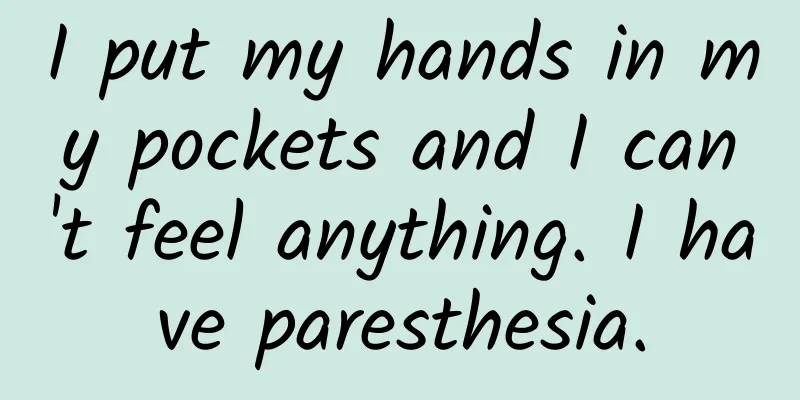Feeling sleepy regardless of the situation during the day and falling asleep in an instant may be a disease!

|
Friends Have you seen such a person? Can't sleep at night and feel sleepy during the day And fell asleep in a second Can't wake up even if I call Uncontrollable drowsiness, falling asleep in seconds, stumbling paroxysms, and feeling like a "power outage" are typical symptoms of narcolepsy . According to CCTV News, there are about 700,000 narcolepsy patients in China, most of whom are children. In addition, the misdiagnosis rate of this disease is relatively high . If symptoms occur, it is important to seek medical attention in a timely manner. Today we will study: What is narcolepsy? What are the symptoms of narcolepsy? How to prevent and treat this disease? Narcolepsy Narcolepsy is a central sleep-induced hypersomnia disorder first proposed by French physician Gélineau in 1880. The characteristic pathological change of narcolepsy is the specific loss of hypocretin (Hcrt) neurons in the lateral hypothalamic region. Narcolepsy is a chronic sleep disorder characterized by excessive and irresistible daytime sleep and falling asleep almost immediately. Don’t think that sleeping more during the day will help. The total sleep time of patients with narcolepsy is not actually extended because their sleep quality at night is very poor . The cause of narcolepsy is still unclear , but it may be the result of the interaction between environmental and genetic factors. More than half of the patients have certain triggers before the onset of the disease, such as emotional tension, excessive fatigue or excessive stress. The incidence of narcolepsy is approximately 0.02%~0.18% , with roughly the same prevalence in males and females. It mainly occurs in adolescents and young people . About 8% to 10% of patients have a family history , and the probability of first-generation direct relatives getting the disease is 20 to 70 times that of ordinary people. Because of the lack of knowledge about it, the disease is often misdiagnosed or missed , but its consequences cannot be underestimated. It is a lifelong sleep disorder that can seriously affect the patient's quality of life and even lead to accidents and endanger life. In China, more than two-thirds of narcolepsy patients develop the disease in childhood , and the condition can seriously affect their academic performance, causing them to fall asleep during important exams, and eventually take time off or even drop out of school. Due to the lack of relevant knowledge, patients are often not understood by themselves or others, and are in a state of frustration for a long time, and even develop depression due to low self-esteem and self-blame. What is more worrying is that more than 90% of adult patients have experienced travel accidents . Clinical manifestations The main symptoms of narcolepsy include sleepiness, cataplexy, sleep paralysis, hallucinations and nocturnal sleep disturbances . About one-third of patients have all the symptoms, which are more common in obese patients. Some patients also have symptoms of anxiety and depression, and about 20% of patients have social phobia. 1. Excessive daytime sleepiness All patients experience excessive daytime sleepiness, which is usually irresistible , such as when walking, eating or talking. Family members often say that patients fall asleep while eating or even chatting. It is more likely to occur when there is less environmental stimulation, such as reading, watching TV, driving, attending classes, or attending meetings. Patients often wake up after a short nap, but they will feel sleepy again soon, so they are often misunderstood by classmates and colleagues. 2. Cataplexy Cataplexy is a characteristic manifestation. 60% to 70% of patients will experience weakness or even cataplexy , which is common in strong emotional stimulation, such as anger and laughter. Therefore, doctors often advise patients to keep their emotions stable and try to avoid drastic emotional changes such as extreme joy and sorrow. 3. Sleep paralysis Sleep paralysis often occurs when falling asleep or waking up. Generally, when the patient wakes up from deep sleep, the whole body cannot move or speak. It can last for several seconds to several minutes, which is the so-called "sleep paralysis". 4. Sleep hallucinations Patients are prone to hallucinations during the transition between wakefulness and sleep . Some patients can hear other people's voices even when they are alone in the room. Others can see non-existent illusions, and when startled, they are easily able to associate them with ghosts and gods. 5. Nighttime sleep disturbance Patients wake up easily and have many dreams, have difficulty falling asleep again, have increased body movement at night, and often have difficulty getting up in the early morning due to sleepiness. If you or your child: often feel sleepy and drowsy during the day, and even have difficulty controlling yourself when taking exams, walking, eating, or talking; suddenly feel weak in the limbs, have a soft neck and lower your head, and speak unclearly when laughing, listening to jokes, or getting excited . If you experience transient (occurring once within a short period of time) inability to move or difficulty speaking during sleep; vivid and unpleasant auditory and visual hallucinations when you just fall asleep or are about to wake up; you have many dreams and wake up easily at night , etc., you may have narcolepsy and need to go to a professional hospital for treatment! Treatment of narcolepsy Please don't be nervous if you have narcolepsy. It is a chronic disease that generally does not worsen with age. Instead, it may be alleviated by adjusting your lifestyle . There is currently no cure. Medicines can relieve symptoms but cannot eliminate the cause of the disease. So don’t easily believe in claims of cures or medicines. It’s still mainly about 30% treatment and 70% care. 1. Take medicine on time, control symptoms and improve quality of life. 2. Maintain a regular life, keep a regular schedule, control your diet, quit smoking and drinking, and don’t play games or use the computer too much. 3. Try to use a shower instead of a bathtub or tub. 4. Parents, teachers, classmates and colleagues should understand the disease and never make fun of or discriminate against patients. 5. If the patient becomes irritable, depressed, or unwilling to communicate with others, parents should pay special attention to understanding and guiding the child to help him overcome psychological barriers. 6. Be sure to create opportunities for a nap. A nap can be even more effective than medication. 7. If you have difficulty in ejaculation, don't insist on holding it in place. You can take a nap at the right time. 8. Choose a job that offers greater freedom and is easier. 9. People whose illness is not under control should not drive, engage in high-altitude work, swim or go to dangerous areas to avoid accidents. |
Recommend
What harm does vaginal relaxation bring to women?
The vagina is a private part of women. Sexual int...
China Academy of Information and Communications Technology: China's 5G mobile phone shipments reached 128 million units in the first half of 2021, a year-on-year increase of 100.9%
China Academy of Information and Communications T...
Why is the woman panicking?
Women may feel anxious because they are experienc...
【Health Lecture】How much do you know about pelvic floor rehabilitation
In order to ensure the popularization effect of l...
I often have back pain, but my blood calcium level is normal. Can I take calcium supplements? Will it cause kidney stones?
An elderly friend told Huazi that he often had ba...
What should pregnant women eat to have a good complexion and be beautiful during pregnancy?
After a woman becomes pregnant, her complexion of...
Brown discharge a week after period
When menstruation comes, a large amount of bloody...
Renren official: As of December 2011, the total number of applications installed on Renren Open Platform reached 800 million
On December 21, 2011, the relevant person in char...
IDC: China's smartphone market shipments in Q1 2024 will be approximately 69.26 million units, a year-on-year increase of 6.5%
IDC released its latest quarterly mobile phone tr...
Delayed menstruation with black color
Whether menstruation is normal or not is an impor...
What to eat for adenomyosis?
Among many gynecological diseases, adenomyosis is...
Does pregnancy increase heart rate?
For pregnant women, they must pay special attenti...
Is less body hair a blessing or a curse for women?
Question 1: Are some women depressed because they...
What happens if you drink saffron during menstruation?
Women's bodies are very weak during menstruat...
How much is a 711 chocolate milk roll? Is the 711 chocolate milk roll delicious? How does it taste?
As we all know, 711 is a popular convenience stor...









